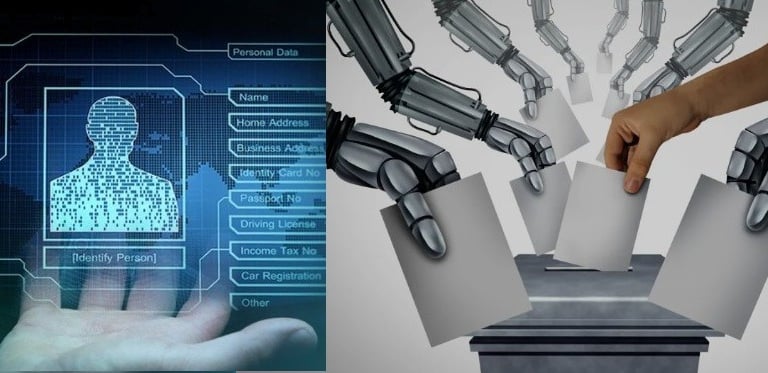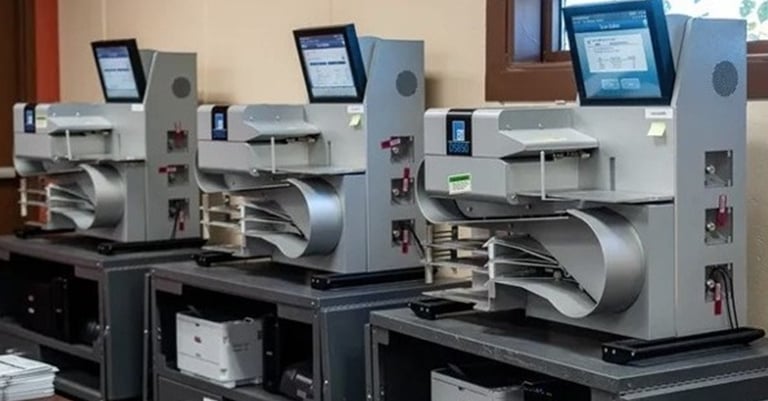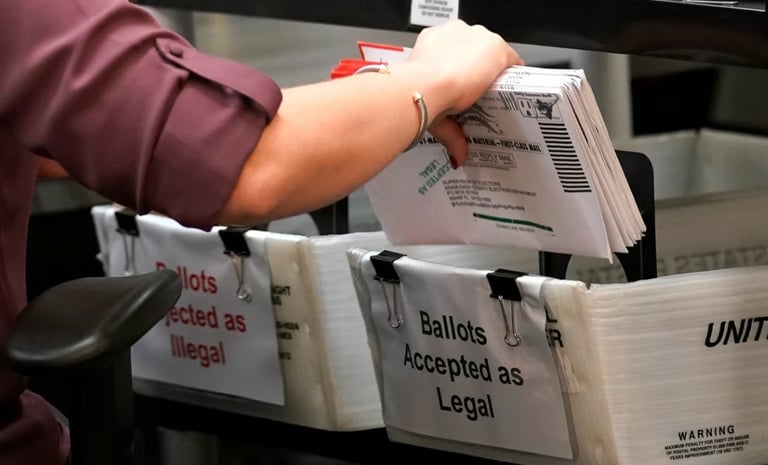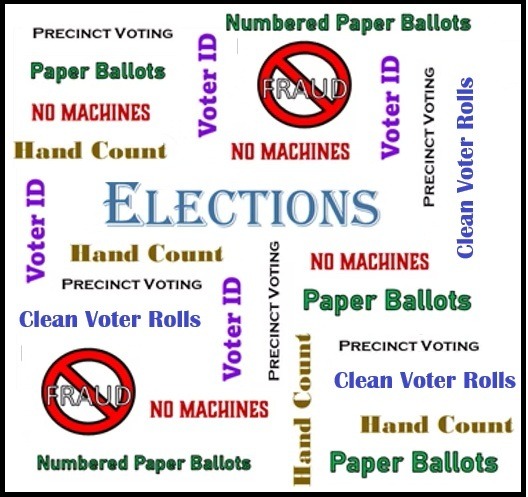
Election Fraud
Computerized election fraud is complicated and involves many types of interconnected fraud. On this page we provide information about several forms of election fraud and offer positive suggestions where possible.


Voter Registration Fraud
More Information:
Electronic Registration Opens the Door to Fraud explains how online registration corrupts voter rolls.
Digital Identities and Phantom Voters shows how online registration leads to digital identification and biometric verification.
Corrupt voter rolls enable election fraud because they include computer-generated "phantom" voters that can be used to generate absentee ballot requests or machine-manipulated votes.
We know this is a problem, since experts such as Dr. Douglas Frank have demonstrated that voter rolls in every county have been manipulated by sophisticated computer algorithms.
Electronic Registration Opens the Door to Fraud, and prohibiting Electronic Voter Registration is one of the easiest things Idaho could do to secure its voter rolls, and prevent computerized fraud.
Electronic Tabulators take physical ballots as input and produce "election results". The problem is, it's impossible to know exactly what the tabulator software is doing, and there is evidence that electronic tabulators can be programmed to manipulate elections.
Tabulator fraud is probably the most serious and insidious form of election fraud, since it is almost undetectable, and it cannot be rooted out either by "Logic and Accuracy" tests, recounts, or certification.


Tabulator Fraud
More Information:
The video Eye on Tabulators and the Politics of Fraud discusses the problem of Tabulator Fraud in depth.
Truly Transparent Tabulation introduces a method of photocopying and hand counting ballots that can short-circuit tabulator fraud.
Election Fraud in KC: Tabulators is the first of a three part series of articles focused on Tabulator Fraud in Idaho.
We have seen that Idaho has a problem with phantom voters. But how could these fraudulent voters produce fraudulent votes?
Well, if One Election Technology company controlled almost all the records of a state's election, including voter information and voter history, and also electronic pollbooks, election night reporting, absentee ballot managment, print-on-demand ballot generation, asset inventory records, and general election management, then that company would be in a good position to falsify election records.
Unfortunately, a centralized, all-encompassing "Election Management" system is already in place, not only in Idaho, but in all state elections offices. It is an enormous threat to secure elections, and recent legislation appears to be expanding its powers and moving Idaho towards Digital Identification.


Election Management Fraud
More Information :
Phantom Election Management Software questions who really developed Idaho's election management software and for what purpose.
Stop Digital ID in Idaho, Amend 339 shows that the Voter Information Database is being used for Mass Data Storage for Digital Identification.
Data Collection Disguised as Election Integrity provides background on HB 339, the Data collection bill disguised as election integrity.
Absentee and mail-in voting are less secure than in-person voting: Firstly, because mail-in ballots have no secure chain of custody. Secondly, because Idaho allows any registered voter to request an absentee ballot online.
And this is evidently a serious problem because an analysis of Kootenai County's voter history shows that at least seven percent of registered voters have only ever voted by absentee ballot, and never in person.
Although numerous elections appear to have been skewed through absentee ballot fraud, Idaho legislative leaders have failed to restrict absentee voting.


Absentee Ballot Fraud
Empowering Voters
Advocating for transparent, honest, and decentralized voting systems.
Please subscribe to the Eye on Elections Newsletter.
Contact us:
© 2025. All rights reserved.

